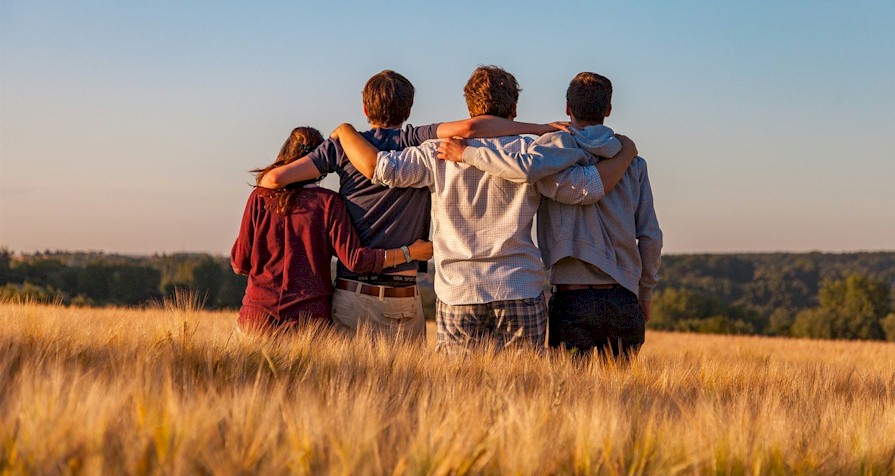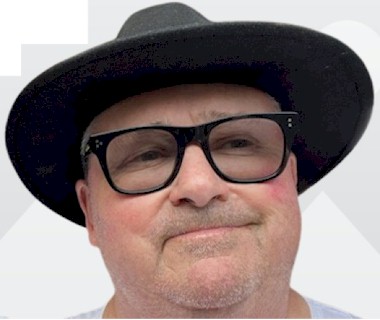Coaching young people to become authentic leaders. An ontological and Mindfulness approach
(6 min read)
Of course, I will do it. This has been my response for over 20 years to a request from Rotary Youth Leadership Award (RYLA) to facilitate a session on learning and leading at their annual conference. The aim of the conference is to expand choices for young people aged between 20 and 30.

This article outlines interpretations and strategies that I and my ex-business partner, Mark Molony, have shared with participants, who leave the conference better equipped to achieve their own outcomes.
The interpretations are largely derived from two bodies of work: ontological coaching and mindfulness.
The Rotary organisation sponsors the participants, paying for their registration and providing several support people who are present at the week-long conference.
Mark and I facilitate voluntarily and always have a great time. Here, I've captured some of the material we use in the workshop and the positive results participants experience.
Dragon breathing. In order to ground participants, we regularly kick off with a physical activity that many would not have experienced before. Dragon breathing is a mix of Tai Chi and Che Gung, engaging physical presence through focused breathing and movement. It is a great way to relax participants for learning, and engages them from the start in a fun activity.
We always commence the presentation declaring that we are learners, not experts. Whilst we have expertise in several domains, we participate at the conference as learners and encourage participants to engage accordingly. This declaration legitimises everyone in the room, whilst also indicating the importance of simply being present as a learner. This is useful.
We then ask participants, who in their lives they consider to be leaders. We follow up with the question: Why would you follow this person?
This provides a background for exploring the sorts of skills and characteristics of the people they would choose to follow. It is as much about followership as it is about leadership. It could well be your great aunt, your footy coach, your supervisor at work, or a leading celebrity or sports star.
Again, we aim to legitimise and learn from their choices.
We introduce the core theory from the ontological world, i.e. the interpretation that we exist as human beings, as a 'Way of Being'. Contributing to our way of being are three comprehensive domains:
- Language - we are linguistic beings.
- Moods and emotions - we are emotional beings.
- Our physical being - we exist in a body.
Each of these domains—language, emotions and body—intersect and, as stated, contribute to our way of being.
We explain this so that participants can generate choices as to their way of being and also create choices that enhance their way of being aligned with their outcomes.
Each domain is explored with practical exercises to engage the participants. I will outline two of them.
Firstly, the domain of language. As linguistic beings, John Searle created the notion of speech acts, one of which is the declarative notion of speech. In short, we are wired to make and receive declarations.
We engage participants in an exercise of dynamic declaration where deep listening is required. In pairs, participants explore the question, 'What makes your heart sing?' They either listen in silence or declare their response to the question and be listened to.
This is a powerful exercise. Most participants indicate that they had never been able to explore and declare so deeply what was important to them.
Again, there is something empowering about being listened to so comprehensively. Whilst this is an intervention that is challenging for some, it often delivers surprising results.
We follow this exploration by doing a deep dive into the second domain of the ontological interpretation: moods and emotions.
The analogy we share is that of a body of water that is Port Phillip Bay in Victoria, Australia. Port Phillip Bay often displays waves. We interpret the waves as emotions. They are there one moment and can readily go away. Moods, however, are like the swell in the bay: they can present and carry on for a long distance before they dissipate.
Again, we are exploring choice. Sometimes, we can be caught up in our moods without even knowing it, or we can make positive choices to embrace the moods that will enhance our way of being and allow us to achieve our outcomes.
So, we participate in an exercise informed by Fernando Flores, who coined the term 'the six pack of moods'. The six are paired as anxiety-peace, resentment-acceptance, and resignation-ambition.
In a dynamic session, we encourage participants to explore each of the six moods separately. They are encouraged to "try on" each one and explore the following directional questions as they go:
- How does this mood feel?
- How are you reacting physically in this mood?
- Does this mood encourage contact with others or not?
- What are you saying to yourself and others in this mood? And so on.
Each mood state is carefully explored and discarded before participants reflect on the predominant moods and choices they have for their futures.
This alone has received positive feedback in shaping plans for the future.
Additionally, we provide the opportunity for participants to explore their values, by asking: what is the compass that will keep them in sync with their declarations of intent, and aligned with the moods they choose to envelop?
In my book, Five Gifts Flourishing, I refer to the importance of values and understanding of your core personal values. In the book, I include several stories to illustrate how values help shape your way of being and your identity. Similarly, participants are given the opportunity to reflect on their values and the role that values have in shaping their way of being.
In recent years, I have donated a copy of Five Gifts Flourishing to each RYLA graduate.
Running a boutique consultancy, diyLIFE Pty Ltd, Mark Molony and I identified a simple, unique model that we reveal to business and personal clients.
Three more circles of existence are explored before the final, memorable activity. The model identifies three overlapping circles: the performance circle, the personal circle and the community circle. It often alarms clients when they are asked to map out the size of each circle, based on the time they spend in each one.
Simple as it is, we have found through observation and research that the more balanced you are across the three circles, the happier you are. The less balanced, the more unhappy. We agree that it is always a dynamic balance, and it is better to be in control of that balance than not.
In our final activity, we take the participants on a future walk, ideally outside the venue. The activity includes the crew of the conference.
This is an activity that combines aspects of suggestopedia, Neuro-Linguistic Programming, Ontological Coaching and Mindfulness. The idea is to engage participants and supporters as one group and use suggestopedic language and visualisation to engage them in imagining their future and physically walking towards that future.
Typically, I find an outside area with a slight incline so that participants, once reaching the pinnacle, can look back and reflect on their past and journey to the future.
Whilst I recognise that some participants may not resonate with this, most do. There have been tears and great excitement as we walk together and arrive at an imaginary future. Many participants report that this activity has been the most impactful and most memorable of the RYLA program. They experience a form of catharsis.
As one participant, Duncan, reflected:
Values and circles had a big impact for me. It allowed me to take a step back and realise that some of the things I did were not aligned with my values. It gave me the space for more effective reflection and to set goals. I set much better goals, more holistic goals for myself when they were values-based. As a result, I changed careers and had more community involvement and am now much happier.
And, here is what the boss thinks:
Alan and Mark's 'way of being' fits the interactive exploration of our 'way of being' as a conference and, importantly, challenges the participant's 'way of being'. This session opens the first full day and becomes the framework for the seven days. The benefits begin here and are woven with all the subsequent content and processes. For example, many doors of possibility open to the Rotary Youth Leadership participants with their first 'taste' of delving into values and how values impact their 'way of being'. The participants achieve life goals they would not have identified. Very heartening to have such self-leadership. Linda Gidlund, District 9790, Rotary Youth Leadership Award, Chair.
A combination of seamless theory, interactive activities, and respectful and challenging facilitation continues to deliver excellent results for the participants and supporters at RYLA. This is matched by our enjoyment as facilitators.
References
Fernando Flores, Conversations for Action and Collected Essays, April 2013.
Lozanov, Georgi, Suggestology and Outlines of Suggestopedy, 1978.
John R Searle, Speech Acts: An Essay in the Philosophy of Language, Cambridge University Press, June 2012, original published 1969.
Alan Seiler, Ontological Coaching and Deep Change, Volumes 1, 11,111 & 1V. Ontological Coaching Institute. https://ontologicalcoaching.net/
Alan Forsyth Silcock is a facilitator, successful coach, and author. He has received excellent results for leading companies worldwide, as well as for community groups, charities, and people of all ages. Visit Alan's website at https://www.followingforsyth.com/ for more information.
Leave a Comment? Click here.
Articles in Issue 2
- What’s in a Name? Mindfulness-based stress reduction is evidence-based hypnotherapy
- Creating connection in hypnosis: Building on an Ericksonian approach
- Book review: The February Man
- The intuitive therapist
- There's more to us than we know
- Coaching young people to become authentic leaders. An ontological and mindfulness approach
- Parts Therapy review
